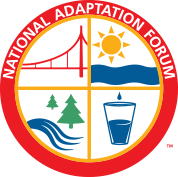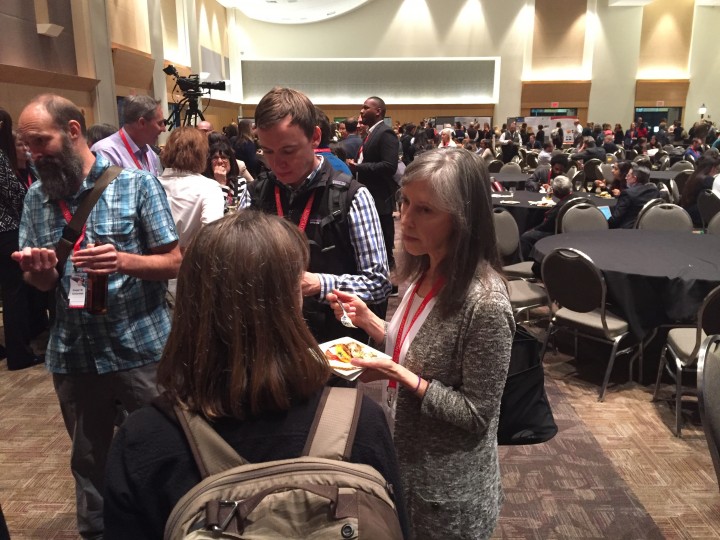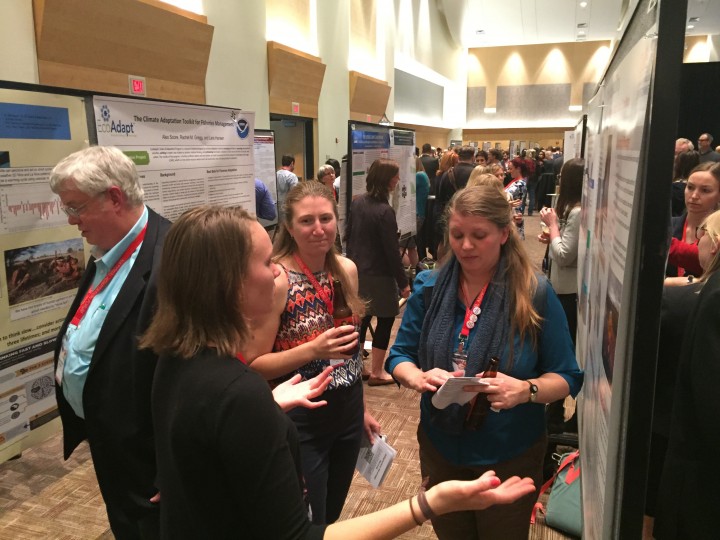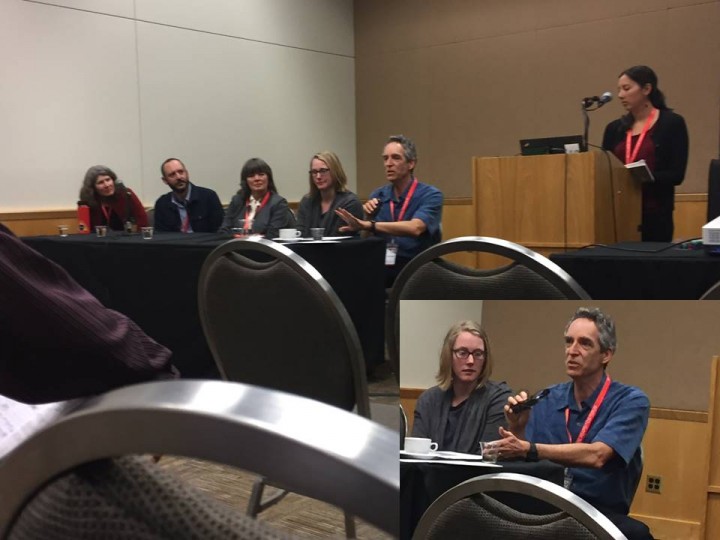The National Adaptation Forum was held in Saint Paul, Minnesota May 9-11, 2017. EcoAdapt, one of our partners working with us on the Hawaiian Islands Terrestrial Adaptation Initiative (HITAI), hosted this event. This forum brought together over 950 adaptation professionals, dealing with all aspects of the problem that climate change poses to our society. Around the theme of Action today for a better tomorrow federal, state, and local government representatives mixed with non-profit, private sector, indigenous/tribal members and representatives. Conversations were centered around the common theme of caring, sharing, and doing the best to prepare for the future. Oh and networking as seen below.
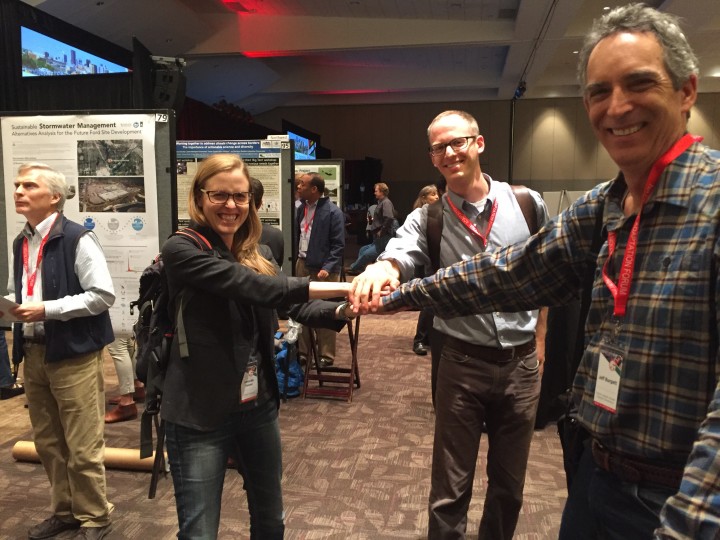
The plenary sessions were inspirational, innovative, and addressed a lot of societal issues that we will face across our country and beyond. On Tuesday the municipal plenary focused on advancing climate adaptation through the lens of local government. have dealt with key focus areas around municipal, community, business, natural resources, and finally a holistic plenary. Later that afternoon was a Community plenary that emphasized the need for creative solutions and climate policies that take into account our diverse communities & build resiliency for all people. Powerful messages that reminded all who attended that climate adaptation work needs to integrate climate justice, equity, and poverty alleviation into the approach. There were also plenary panels in regard to balancing local private sector leaders and natural resources, societal infrastructure, and a thriving sustainable economy.
One of lunch’s featured a film, “One stick at a time”, profiling an effort to use beavers in Washington state to increase the resilience of the landscape. It was very clear that managers and scientists at all levels of this effort were grappling with the fundamental changes to their ecosystem, feeling both grief at what will be lost, but also resolve to make the future the best it can be. Rather than being overwhelmed, they are focusing on what they can do, and like the beavers, just working on one stick at a time.
The session on the LCC coastal resiliency work with communities included a team-talk plus video from Alaska, where issues are similar in many ways to the Pacific islands: remote communities, close indigenous ties to the land and sea, and a need for adaptation science to focus on issues critical for social and cultural preservation. A second talk was about an effort to model estuary marsh futures all along the West Coast of the US, supported by both LCCs and CSCs, working with local managers. And Jeff Burgett’s talk highlighted adaptation leadership by communities in Pohnpei, Ka’upulehu, and Moloka’i.

